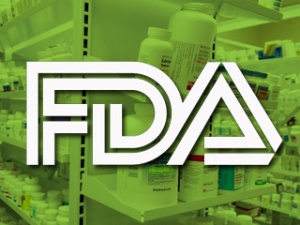November 10th, 2009 by Happy Hospitalist in Better Health Network, Opinion
No Comments »

When a patient decides they are leaving against medical advice what responsibility does the physician have to their care? When I was a resident in training, and even early on in my position as a hospitalist, I would get a call from the nurse that Mrs Smith was demanding to leave the hospital against medical advice. I would tell the nurse “Fine. Let her go. I’m not her father.” I would tell the nurse to discharge Mrs Smith with no medications and leave it up to them to find follow up.
I would suspect this is a prevalent attitude for many hospital and emergency based physicians. I’ve seen it over and over again. And I still see it today. Many doctors and nurses feel obliged to let grown men and women make poor decisions. However, being a grown man or woman able to make poor decisions is apparently not enough to keep a doctor for being sued and losing that lawsuit because a patient chose to make poor decisions. Read more »
*This blog post was originally published at A Happy Hospitalist*
October 7th, 2009 by Happy Hospitalist in Better Health Network, Health Policy, Opinion
No Comments »

Some put the figure for defensive medicine at 10% of medical expenses a year. That’s $250 billion dollars. Others claim it to be 2-3% per year or about $60 billion dollars a year.
Now ask any physician what it is. I’d say it’s closer to 30% a year. That’s $750 billion dollars a year. Why? Because I know what is going through the minds of physicians when they put the pen to the paper. In America, we strive to exclude the long tail diagnosis. Why? Because getting sued for 67 million dollars because you treated a torn aorta when all the evidence pointed to an emergent MI has a way of making doctors evaluate the possible, instead of focusing on the probable.
Defensive medicine is not about losing a lawsuit. It’s about getting sued and the lack of boundaries that protect a physician from having bad outcomes with competent medicine, even if that competent medicine was the wrong medicine for the wrong patient at the wrong time, a fact known only after the fact when a bad outcome occurs. Read more »
*This blog post was originally published at A Happy Hospitalist*
October 4th, 2009 by CodeBlog in Better Health Network, News
4 Comments »

When University of Louisville nursing student Nina Yoder blogged about her experience watching a patient give birth in a post entitled “How I Witnessed the Miracle of Life,” she may have thought she was just blowing off some steam. Well her school saw things very differently.
When school officials read Yoder’s post, which included a description of the baby as a “creep” and “a wrinkly, bluish creature, all Picasso-like and weird, ugly as hell, covered in god knows what, screeching and waving its tentacles in the air,” they moved to expel her from school by calling her into an office, searching her for weapons (apparently because Yoder had separately blogged about her support for the Second Amendment), and informing her she was no longer enrolled at the school. Read more »
*This blog post was originally published at code blog - tales of a nurse*
November 6th, 2008 by Dr. Val Jones in Opinion
3 Comments »
Wyeth vs. Levine is an important legal case being tried before the US Supreme Court. You may have read about the lawsuit in the New York Times, NEJM, JAMA, the Wall Street Journal, or my own blog. It revolves around the tragic story of a woman (Ms. Levine) who experienced an extremely rare side effect (severe tissue damage resulting in the amputation of her right arm) because a drug was administered improperly (into an artery rather than a vein). Ms. Levine is arguing that her injury could have been avoided if the drug label had stronger warning language, and the Vermont Supreme Court ruled in her favor, awarding her $7 million. The court ruled that a jury in the state of Vermont had the right to hold Wyeth accountable for a different labeling standard than the one approved by the FDA.
The plot thickens, however, in that Wyeth’s FDA-approved label very clearly discourages injection of their drug into or near an artery, and it also describes the potential consequence (including gangrene) of such an action. The FDA approved Wyeth’s label in full knowledge of the potential risks and benefits of the drug. In fact, Wyeth asked to strengthen the language of the label before Ms. Levine was injured, and the FDA declined to make the change because label changes are based on new information about a drug’s frequency or severity of risks. Wyeth had nothing new to disclose. Read more »













